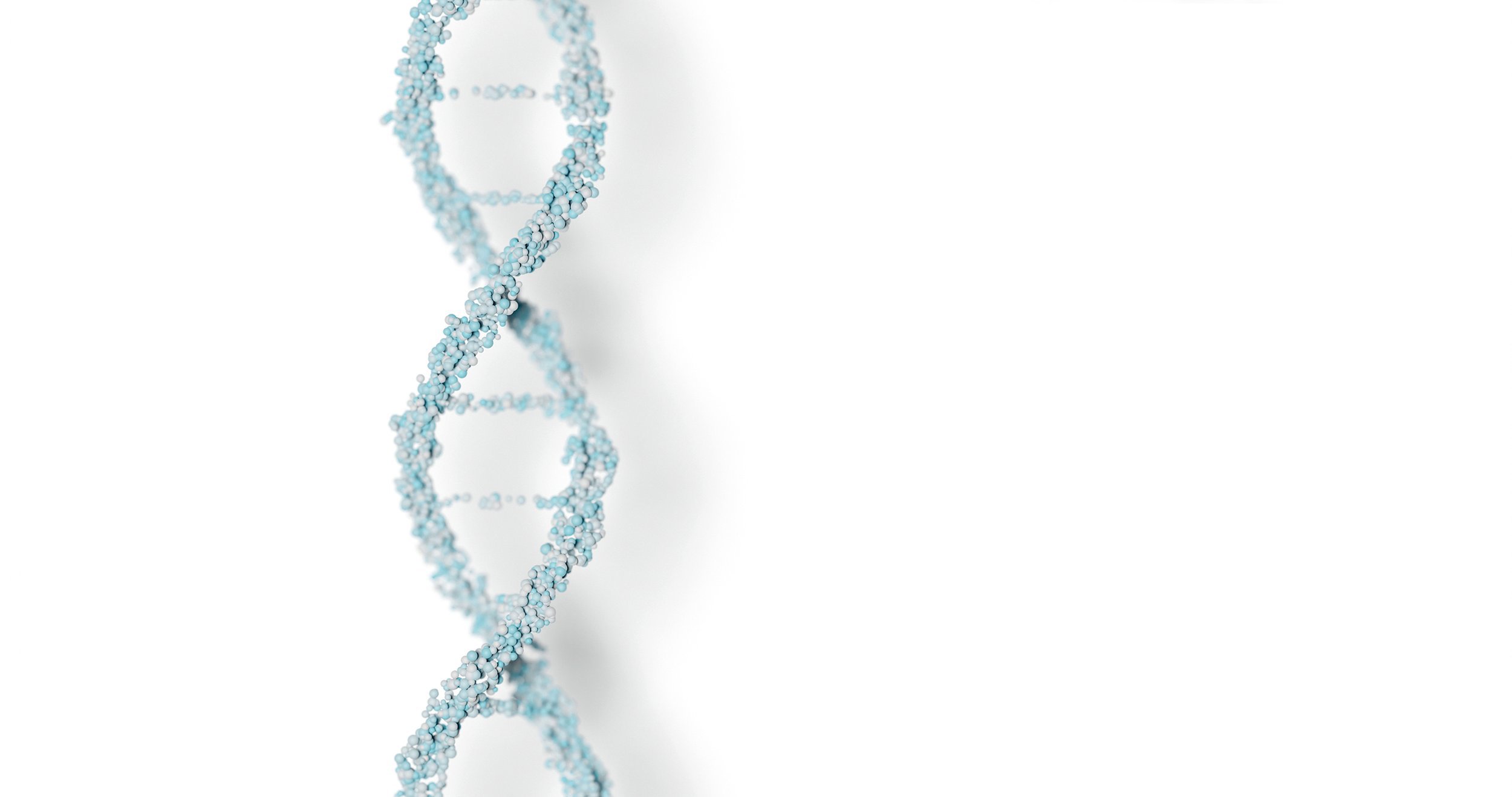
GET WISE
TO YOUR GENES
BC Cancer is now offering a fully funded BRCA genetic testing program for any adult of Jewish ancestry living in British Columbia and Yukon.
More Questions? Please send your inquiries to jewishbrca @ bccancer.bc.ca.

WHAT ARE THE BRCA GENES?
BRCA1 and BRCA2 are two genes in the human body that are important for fixing problems in our DNA.
When BRCA genes work well, they protect us from developing certain cancers. Sometimes people inherit a copy of BRCA1 or BRCA2 that has a change in its protein structure (also called a mutation) from one of their parents.
Certain populations, such as people with Ashkenazi Jewish heritage, are at greater risk of inheriting these mutations and carrying them in their DNA.
BRCA mutations are associated with an increased risk of breast, ovarian, pancreatic, and prostate cancer.
WHY BRCA MUTATION TESTING MATTERS
Testing for BRCA gene mutations is important because:
This information could help you and your family members detect cancers early, or
Prevent cancers before they start
People with Jewish ancestry should consider testing because:
BRCA mutations are much more common in this population - up to 1 in 40
This is compared to a 1 in 300 risk in the general population
You might think that families who carry BRCA mutations are easy to spot, but this isn’t always the case. About 50% of Jewish BRCA carriers are not identified by current testing criteria because they don’t have a significant cancer history in the family.
Not all BRCA carriers will get cancer. But knowing that you carry a BRCA gene mutation can open many doors to help you ensure you stay healthy and cancer-free.

WHO CAN GET TESTED?
Testing through this program is recommended and available to you if you meet all of the following criteria:
A person of any gender, including males
Aged 19 years and older
With 1 or more grandparents of Ashkenazi, Sephardic or Mizrahi Jewish ancestry
Located anywhere in British Columbia or Yukon territory
GETTING TESTED IS NOW CONVENIENT, EASY AND FREE OF COST TO YOU
You can do the test and get results from your home.
The test kit is sent directly to your home and you can mail it back with the prepaid envelope provided to you.
You only need to give a saliva sample - no blood work or needle needed.
Any adult with Jewish ancestry can get this test.
It’s totally free of cost to you: You do not have to pay to get the test or to get your results.
When it comes to BRCA KNOWLEDGE IS POWER.
It’s time to get wise.
STEP-BY-STEP BRCA TESTING PROCESS
STEP 1
Click the link or scan the QR code below
STEP 2
Complete an online pre-test education module
STEP 3
Provide a saliva sample for genetic testing by mail
STEP 4
Receive results by email, phone or in person
1 - Click the link: https://mygeneticsadviser.com/bc-cancer/ or use the QR code:
2 - You will be directed to Genetics Adviser* where you will complete a pre-test education module. You will learn about genetic testing and can decide whether testing is right for you.
3 - Give a saliva sample for genetic testing. You will receive a kit by mail with instructions on how to collect your saliva sample and send it to the genetic testing lab.
4 - Genetic test results will be shared with you by email or appointment with a genetic counsellor (in person or by phone).
*Genetics Advisor is a Canadian proprietary platform supporting genetic testing education and the delivery of genetic health services. Please note that the “Get BRCA Wise” Jewish BRCA Testing program is still managed in totality by BC Cancer and all personal data or genetic information is collected by and accessible only by members of the team at BC Cancer.
How to Take the Test
Watch as Lana Marks Pulver, Board Chair at Jewish Federation of Greater Vancouver, walks us through the simple process of taking the BRCA test as part of the Jewish BRCA Testing Program.
WHAT CAN CARRIERS DO TO PREVENT CANCER?

WHY IS THIS PROGRAM SO IMPORTANT?
BETTER IDENTIFICATION OF BRCA CARRIERS IN THE JEWISH COMMUNITY
Offering BRCA mutation testing to all Jewish people is more effective at identifying carriers than screening only Jewish people with a family history of cancer
Current research suggests that 50-60% of people with Jewish ancestry found to have a BRCA mutation would not be identified using current genetic testing criteria (Manchanda et al. 2015; Gabai-Kapara et al., 2014; Metcalfe et al. 2013; Metcalfe et al. 2010)
EARLIER DETECTION OF PREVENTABLE CANCERS IN CARRIERS
Research shows that there is a high uptake of breast cancer screening among Jewish women with BRCA mutations and 70-100% of female BRCA carriers undergo yearly MRIs and mammograms (Metcalfe 2019; Metcalfe et al. 2012)
75% of cancer is detected by MRI or mammogram and 75% of these are at an early stage (Bernstein-Molho et al. 2020)
Men with BRCA mutations are more likely to have advanced prostate cancer than men without mutations and therefore should start prostate cancer screening at an earlier age (Page et al. 2019; Bancroft et al. 2014)
77% of men with a BRCA mutation enroll in prostate cancer screening within 3 years of diagnosis, indicating that BRCA+ status motivates adherence to prostate cancer screening in men (McKinley et all. 2007)
BETTER CANCER PREVENTION IN FEMALE CARRIERS
Risk-reducing surgery decreases the chance of breast and ovarian cancer for any woman with a BRCA mutation
Preventive bilateral mastectomy (removal of both breasts) is associated with a 90-95% reduction in breast cancer risk (Rebbeck et al., 2024)
Preventive bilateral salpingo-oophorectomy (removal of ovaries and fallopian tubes) is associated with an 80% reduction in risk of ovarian cancer (ovarian, fallopian tube and peritoneal) (Finch et al. 2014; Finch et al. 2006)
BETTER TREATMENTS AND IMPROVED SURVIVAL FOR BRCA-DRIVEN CANCERS
BRCA-driven cancers are often handled differently than non-BRCA-driven cancers. Treatment and surgical options provided to a cancer patient may be different depending on their BRCA status
People with BRCA mutations who develop related cancers can sometimes be offered specific medications called PARP inhibitors in their treatment that can keep cancer from getting worse for a longer time and help them live longer overall (Tutt et al. 2021; Faraoni et al. 2018)
Prostate cancer associated with an underlying BRCA mutation may respond better to PARP inhibitors and certain types of chemotherapies, which can improve survival in BRCA+ positive men with prostate cancer (Pomerantz et al. 2017; Mateo et al. 2015)
FREQUENTLY ASKED QUESTIONS
-
Our genes are the instructions for how our bodies develop and function. Over 20,000 genes have been identified in the human genome. We have 2 copies of each gene in every cell of our body (one gene copy is inherited from each of our parents).
Everyone has the BRCA1 and BRCA2 genes. These genes play an important role that help protect DNA and in turn, preventing cancer. The name “BRCA” is an abbreviation for “BReast CAncer.” BRCA genes include BRCA1 and BRCA2. Their function is to prevent DNA damage in cells in specific parts of the body. They are known as ‘tumour suppressor’ genes.
Some people are born with a mutation in BRCA1 or BRCA2. People who have a BRCA genetic mutation have an increased risk of breast, ovarian, pancreatic and prostate cancer.
-
No. These genes help prevent cancer in specific parts of the body. If a person’s BRCA1 or BRCA2 genes are not working properly (due to genetic change or mutation), then they are at an increased risk of developing cancer. It is not a guarantee that they will develop cancer.
-
Yes. Some gene mutation-related cancers may still affect you regardless of your gender. An example is men with a BRCA mutation are at increased risk of developing prostate and male breast cancers. Early cancer screening is available for male BRCA mutation carriers.
-
No. The Jewish BRCA testing program currently only tests for the BRCA gene mutations. Many other gene mutations are associated with hereditary cancer syndromes in families. You can find full a list of these genes here.
The scope of the Jewish BRCA testing program may increase in the future to include additional gene mutations. If you receive a negative test result but are still concerned that you may carry a gene mutation not tested for under this program, please contact the Hereditary Cancer Program at BC Cancer to learn if you qualify for additional testing at HereditaryCancer@bccancer.bc.ca.
-
You will get testing for the BRCA1/BRCA2 genes. Both BRCA1/BRCA2 are associated with breast and pancreatic cancer in males and females, ovarian cancer in females and prostate cancer in males. There may also be a higher risk for stomach cancer in people with a BRCA1 or BRCA2 mutation and melanoma in people with a BRCA2 mutation.
To find up-to-date statistics on BRCA risk profiles, you can use the links here for BRCA1 and here for BRCA2.
-
Genetic testing is a process that looks for changes in your DNA. Everyone has changes in their DNA (called gene mutations). Some may be harmless and others may influence your susceptibility to various health conditions.
-
You can expect to receive your results approximately 3-4 weeks after your DNA sample is received by the lab. Timing may vary slightly depending on the transit times of samples.
-
A negative BRCA test only means you do not have an increased risk of cancer that would be associated with a BRCA gene mutation. Most cancers are not thought to be genetically linked and there are many other genes that may also play a role in cancer risk and are not tested for by this program. If you want more information on cancer prevention, please access the BC Cancer Prevention website.
-
The majority of hereditary cancer gene mutations are inherited in an autosomal dominant manner, which means one copy of the mutated gene is sufficient to increase a person’s chance of developing cancer. Any of your biological children or siblings (both male and female) will have a 50/50 chance of carrying the same genetic mutation and predisposition to cancer. Typically, one of your biological parents will carry the same gene mutation, as well as some of your relatives.
Informing your relatives of your test results is a very personal process. Your genetic counsellor will discuss your options with you and support you in your decision-making about that process.
-
You may worry that test results could affect your future employment options or the cost or availability of private insurance. In Canada, there is a law called the Genetic Non-Discrimination Act (GNA). It protects your genetic information. However, insurance companies may still ask you questions that may make purchasing private insurance more difficult for mutation carriers. It is recommended that you have purchased private health and life insurance before any genetic testing to avoid challenges.
-
All personal and clinical information collected through this program will be stored on password-protected documents on a secure drive. Only staff and physicians at BC Cancer associated with the BC Cancer Jewish BRCA Testing team will have access to your data.










